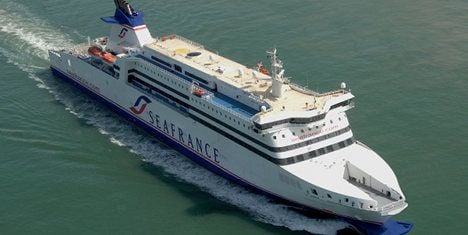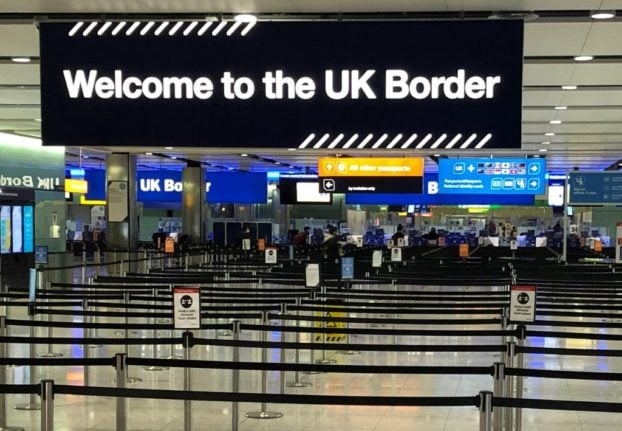The Paris commercial court postponed its decision on the legality of the CFDT union-backed takeover bid, the last one on the table to rescue the firm, until January 9, Philippe Brun, one of the workers’ lawyers, said.
With unemployment threatening to rise above 10 percent of the workforce four months ahead of a presidential election, the unpopular Sarkozy has made preserving jobs a priority of his as-yet unannounced bid for another mandate.
The right-wing president held a meeting with key ministers on Monday and backed the cooperative – known as Scop – to be financed by workers’ lay-off payments from SeaFrance’s parent company, state-owned rail firm SNCF.
“I have asked SNCF to set-up an exceptional supra-legal indemnity for sacked workers to allow them to use these funds to finance the Scop,” Sarkozy wrote in a letter to Scop-SeaFrance.
The cooperative’s offer, backed by the CFDT union, is the only one remaining to save the last French business plying the formerly lucrative Dover-Calais route after the Paris commercial court rejected other bids in November.
The company directly employs 880 people in France’s hard-hit northwest and at least as many jobs again indirectly.
The workers would finance the new cooperative with their lay-off payments as well as the “exceptional” payments, which Transport Minister Nathalie Kosciusko-Morizet said could amount to between €50,000-60,000 per worker.
Regional authorities have said they could contribute €12 million to the company, which along with the workers’ indemnities would cover the €40-50 million necessary to restart the business.
With many seeing a political coup for Sarkozy, who will not be seen as to blame if the cooperative venture fails, the workers themselves remain sceptical about the Sarkozy’s U-turn.
“It’s a good thing for the state to be interested in SeaFrance,” said the workers’ lawyer Philippe Brun.
“But the way it’s doing it, the solutions it’s proposing, are bad. It’s a preposterous legal arrangement that has little chance of leading anywhere.”
SeaFrance competes with the British firm P&O in carrying millions of passengers a year across the world’s busiest sea route but both companies have suffered from competition from the Channel Tunnel since 1994.
SeaFrance was hit hard by the 2008 financial crisis, and in 2010 it shed 700 jobs and was put into receivership.
A P&O spokesman told AFP that the company would take action at European Union level if the cooperative takeover went ahead.
“If it’s true, it beggars belief,” the spokesman said.
“If there is any suggestion that the French state will continue to support this company, we will lodge an immediate complaint with Brussels and we will pursue that complaint most vigorously.”
SeaFrance has been in liquidation since the Paris commercial court on November 16 rejected bids to save the firm, although the company was allowed to continue to operate until January 28 pending a decision on the fresh offer.
French shipping firm Louis Dreyfus Armateurs and Danish ferry company DFDS had made an offer to invest 50 million euros in the firm and buy five of its ships for another five million euros.
But the companies’ plan would have involved more than half of SeaFrance’s staff losing their jobs, and the court ruled that this could trigger industrial action that would further damage the ailing firm.
The court said the companies’ offer for the ferries was also too low, and rejected the CFDT-backed cooperative because of a lack of capital.
A bid by SeaFrance management to buy out the firm, backed by a €160-million loan from SNCF, was blocked last year by the European Commission on competition grounds.



 Please whitelist us to continue reading.
Please whitelist us to continue reading.
Member comments